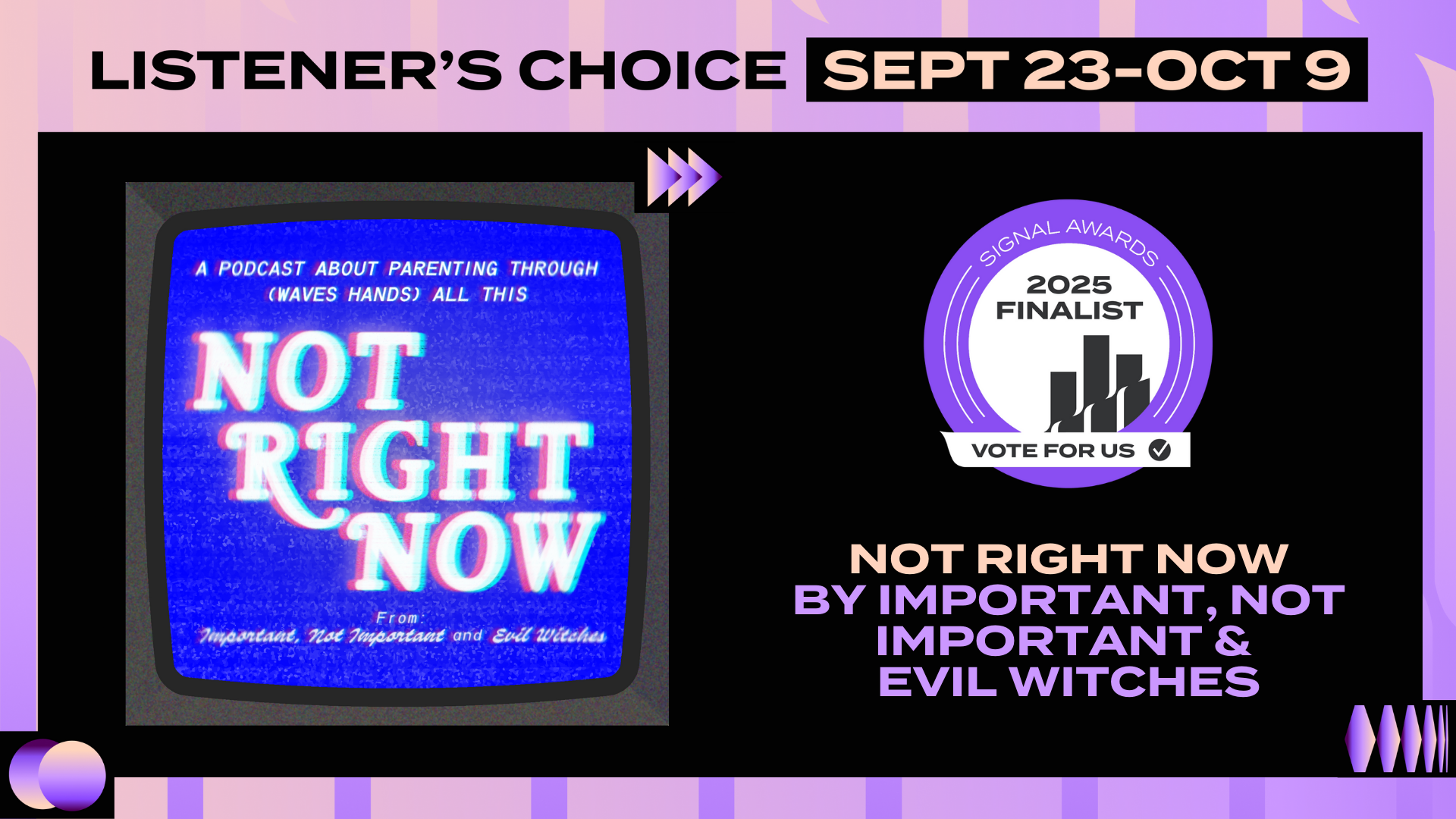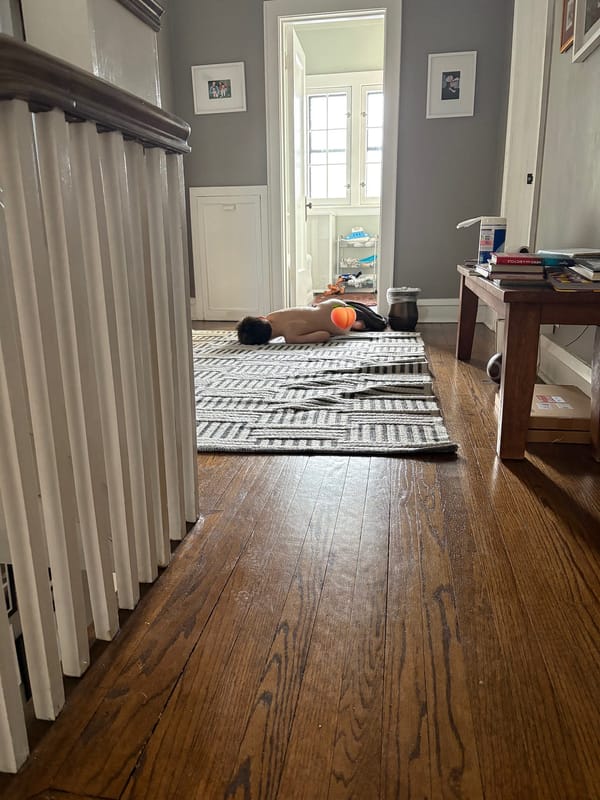Move over emotional labor: It's cognitive load time!
Why you're so tired and mad at your spouse. (One of of the reasons why)

The paid subscribers voted in the last issue on the next Witches topic, and this is what the majority of you wanted to know: What’s up with cognitive load?
A few weeks ago, sociologist Allison Daminger of invited me to chat with her about her new book, What’s On Her Mind: The Mental Workload of Family Life.
Once I got into it, I was surprised by how much her research explains about a certain exhaustion and disconnect in couples that occurs once you have kids. It’s something we touch on a ton in this newsletter: It’s the monitoring of the toilet paper supplies, it’s the keeping track of kids’ seasonal clothing, it’s the family calendar, and it’s the packing list. Do you ever feel a whirring in your brain that is tiring but doesn’t quite feel like work? Does your partner seem to have a completely different type of family brain? How does this happen? Daminger’s book gave me a new way of thinking about this.
This is an edited and condensed version of our conversation at Women and Children First in Chicago last month.
So, how is cognitive load different from emotional labor?
Emotional labor is about managing your feelings and managing the way they affect other people. When my daughter is screaming during her fussy time of day, it’s like, “Okay, I am not going to scream myself. I’m going to be cheerful and keep a calm family atmosphere.” What I wanted to get at was, what are the needs that people are anticipating? Today in my life it was like, “Okay, I need to get myself and my daughter here to Chicago, and my husband was already here. What is the order of operations? What do we need to pack? Okay, it’s just one night.” thinking about all the things we’re going to need, figuring out the plan, either researching or brainstorming or going to friends, making a decision, then following up and monitoring, to say, “Okay, here’s what I decided. Did this meet the need? Do I need to go back to square one?”
How did you get your subjects to measure cognitive load beyond just how much time they put into minding their family?
I knew that if I just asked people, “How much time are you spending thinking about stuff for your household?” I probably wouldn’t get great answers. Not because it wasn’t meaningful and important and a source of stress and strain in their lives, but because there’s no easy way to translate it into the measures that we have available.
When I started recruiting parents, I asked them to keep a decision log before the interview. It was simple; they could do it on the spreadsheet, or they could just do it on a post-it note. I said, “Write down the decisions that you are making or contemplating for your family over the course of the day before our interview.” That would be mostly mundane things like, “What should I feed my child for breakfast?” “I noticed that his snow pants are getting snug and winter is approaching, so probably I should go some more.”
Sometimes it was bigger things, like some families were in the middle of moves and thinking about what moving company to go with or what school to enroll their child in.
Then, I would speak with both partners independently, and I would say, “Walk me through this decision. You wrote down that you decided to feed your daughter eggs for breakfast. What else did you consider? How did you know what ingredients were on hand? What were your considerations? What were the benefits of eggs? Why not cereal?” They would talk me through these and elaborate, “Well, she hasn’t had much protein. It has been a real struggle to get her to have protein. She’s into carbs, and so the eggs she’ll sometimes eat.”
That told me there’s a lot going on behind the surface, even on these decisions that we make on a daily basis. What I wanted to try to understand was what the footprint of that work is in people’s lives, and how that varies by gender. [Ed: Before our conversation, Allison and I swapped bullet points of our own cognitive loads over a span of 24-ish hours—paid subscribers can check it out below.]
So spoil it for us, who is doing the majority of this thinking?
I did find that in about 80% of the different gender couples that I interviewed, it was a woman who was doing more of this cognitive work, especially the anticipating, constantly scanning the horizon and the calendar, the schedule, the seasons and knowing what is coming out that we might need to deal with. “What do we need to be talking about? What do we need to be planning for?”
Then on the back end, the follow-up and monitoring and saying, “Did you call the plumber? Did the babysitter ever text us back? Is this new sleep thing we’re trying with our toddler working or do we need to go back to square one?” Those were the pieces that I saw being most gendered, with women doing more of them. The stuff in the middle was a little bit more complex. For most decisions, it was a joint effort. If it was a decision not necessarily about what to have for dinner, but about where to go on vacation or whether our child should do soccer, couples usually at least talked about it.
One person—usually her—had usually done more research to bring it to the decision stage, but it was not as though the men that I interviewed were totally absent and not involved in decision-making for their families.
The research part had more women, but it varied depending on the topic. I had a lot of men who were passionate about researching appliances or tech, and they had elaborate spreadsheets figuring out, “Okay, we’re going to get this Alexa,” or whatever the latest gadget was at the time I was doing the interviews. But overall, women were carrying a lot more of this work.
Was that very different when it came to the queer couples you interviewed?
I did two more rounds of data collection to diversify the sample socioeconomically and by gender roles. With queer couples, what I found wasn’t 50-50 in the majority of couples. Most of them had some level of cognitive labor inequality. But there were differences that I found illuminating.
One of them was that the gaps were a lot smaller. It was maybe more like 60-40 than 80-20. Another was that it didn’t divide up into one partner doing the more female-type cognitive work, and one partner doing the more male-type cognitive work. It was a much more mix-and-match situation where partner A would say, “I am keeping my eye on all the home maintenance things, but I’m also making sure that our childcare setup is fine.”
When I spoke with straight couples, I often got the impression that they were having some realizations in real time. One interviewee memorably said to me toward the end of our interview, “Oh, I do all the girl stuff and he’s all the boys’.”
Whereas with the queer couples, it was much more common for them to say, “Oh, yeah, we talked about this. There was an article that my partner sent me and we fall into this type and we’re okay with that, but we can change it.” They had much more of an ongoing dialogue with their partner about whether this was something they were okay with, whether they wanted to change it, and they felt like they could if they wanted to.
You also spoke with folks where there was a stay-at-home dad or the mom earned more than the dad. Did that change the cognitive load for them in those cases?
I spoke with a number of couples where her career was more significant in terms of income or hours, and the majority of those couples still assigned more cognitive labor to her.
That said, those one in five couples where it was him doing more or the couple sharing at 50-50, they were all couples where her career was bigger in either the income or hours. Whereas in all the couples where he earned more, it was clear that he was doing less of the cognitive labor.
Talk about that one mom who got shamed by the pediatrician for being busy.
I have a chapter in the book on couples where he does more of the cognitive labor, or they split pretty 50-50, and a number of those couples reported upsetting incidents. This mom had a job that was much less flexible. Her husband’s job was much more work-from-home. So he did most of the pediatrician appointments, and she went to one, and the pediatrician says to her, “Oh, it’s nice to see mom at baby’s visits.”
This was years later, and she was telling me about this in an interview. It’s a message that, “Hey, you’re not fulfilling your role here.” I don’t want to ascribe bad things to that pediatrician, but I think he probably felt that she was derelict in her role as the mom by sending her husband.
I don’t consider myself a conservative, trad wife person. I am not happily taking these responsibilities I do tend to take care of (like laundry, and food, and kids’ wardrobe.) I’d like to think that I’m not just falling into what we would consider gender norms. How did that feeling translate with the folks that you spoke with, and how they saw themselves?
That is a common pattern that I saw. Most of the couples that I spoke with talked about how their preference was for it to feel fair. They did not want to be in a relationship that was their parents’. They talked about the importance of mutuality and fairness. Many of them did not want to feel like they were in an unequal or traditional partnership. What they told me was, “It’s just our personalities.” She’s type A, she’s organized, she has high standards, she’s on top of things, and he is laid back.
Fun dad.
Fun dad. Exactly. My job as a sociologist is to come in and say, “Huh, seems like if all of the couples I have talked to are happening to have personalities along these lines that maybe something bigger is happening here.”
What I end up arguing is that by putting it on the shoulders of personality and by blaming it on our personality, I think that is helpful for keeping the peace. I think it’s a lot easier to say, “Huh. My husband, he’s not observant. He just doesn’t have a good spatial awareness,” rather than say, “Oh, there, there’s something he’s opting out of here when it comes to our home.”
I don’t think that in many of the couples I interviewed, it was a case of weaponized incompetence. That’s a word that gets thrown around a lot, and I think that is a real phenomenon, but not so much what I was seeing. It was more about women anticipating how others would see them.
I think about this when my mother-in-law comes to visit. I assume that she’s going to think I’m a bad housekeeper because we haven’t vacuumed in months and there’s dog hair everywhere. My husband has got other qualities, but she doesn’t expect him to be a housekeeper. Whereas women have internalized, I think, the expectations that are quite real. Who does the consequences fall on if something goes wrong? This was especially true with kid stuff. “If my kid forgets their clarinet, I’m going to get a phone call and then I’m going to have to interrupt my workday.” It’s a not quite rational, but reasonable response that people are going to judge me differently and I’m going to be the one to pick up the pieces if things fall apart.
People told me about a lot of things that I don’t think they would tell me about if they were trying to put their best face forward. I can never know what is truly in their heart, but I think on at least some level, it bothered them that there was this evidence that they were not quite living out their ideals in the way that they had hoped.
It sounds like people would get to a point where they’re like, “Well, am I the problem and how can we fix this?” I know this is not a self-help book and you’re not here to give solutions, but talk a little bit about where those conversations would end up and what you observed.
I remember one couple in particular. He was a doctor and she was a librarian. Both of them, in their independent interviews, talked in circles. I could see these acrobatics that they were trying to do because I was gently, I hope, asking questions about, “OWho does this? Who does what?” I think they were like, “Oh, no, it’s going to look like she does everything and he does nothing.” He went on this whole thing about how, “Well, historically you could say it was a gender thing because maybe she didn’t do well in organic chemistry, and maybe that was something about, but really, even though historically we’d have a lot of hiring male doctors...”
I could see him wrestling with it in real time. I heard from a bunch of couples after the interview that it had generated productive conversations.
Since you got married and became a mom after you’d begun this work, was there any part of you that was like, “Well, I’m not going to fall into these traps because I see what all these people are doing. I’m going to get ahead of it”?
I like to think that we are in a good position to enact our values. I was pregnant and then we had a six-month old and we found ourselves living the social forces that I write about. For example, while I was pregnant, my family was texting me about the shower. “What are you going to do with this? Should we buy this? Should we buy that? When should we visit?” Wait a minute, no, we’ve got to put both of us on. It’s the group thread.
There were those moments where you realized that it’s not just about your intentions; you are part of a much broader system, and it takes a lot of energy to fight back against those things. For us, I think it’s been about picking our battles and saying, “Where do we actually not like the norm?” and where are we like, “Oh, we’re okay with it.”
I try not to do anything with our cars. I know that that is gendered, but I don’t care, and I was not socialized to care about it. My husband has another set of tasks that he was not socialized to care about. For us, it can be helpful to acknowledge the system and acknowledge the broader forces rather than saying, “It’s all up to us and we can fight the good fight.”

End credits
Thanks for reading this issue of Evil Witches, a newsletter for people who happen to be mothers. Feel free to forward it to a friend if you like. If someone forwarded it to you and you read some of the archives and think “Holy shit, I may have found a new good place on the internet,” I hope you show your support and become a paid subscriber, which also gives you extra/more personal members-only threads and emails, the ability to promote your work to the other readers, etc.
The archives live here.
If you have any questions, ideas, feedback or suggestions for other issues or chat threads, you can reply right to this email.
Vote for Not Right Now!
Thanks to those of you who have given a listen to the podcast project I’ve been doing with called “Not Right Now” (we are currently recording new eps).
It’s nominated for an award! Feel like taking an extra second and showing your support? Please go here and vote for us in the Family & Child-Raising category! It will get us more eyeballs and maybe eventually a sponsor or something even. Thanks!






